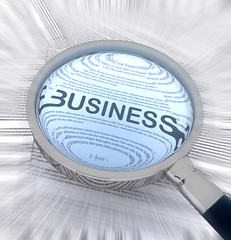Today, Dear Reader, we continue the series on the business of writing and welcome back Brigitte A. Thompson as she shares her professional advice as an accountant and author.

Bookkeeping is an essential part of the business of writing, especially identifying and tracking expenses. Business expenses are considered an operating cost. The more legitimate business expenses that we can document, the lower our tax payments will be.
Ordinary and Necessary Business Expenses for Writers:
The Internal Revenue Service (IRS) requires that our writing expenses be ordinary and necessary in order for them to be acceptable. An ordinary expense is defined as common and accepted in our profession. A necessary expense means we need to spend this money in order to operate the business. The expenses must not be considered extravagant. They must be an essential part of doing business as a writer. It is important to differentiate between personal expenses and business expenses.
Writers are able to realize some unique deductions which may be considered personal for other taxpayers. For example, a book on the history of California used for researching my fiction manuscript based in that state could be deductible as a writer. Other potentially deductible expenses include tickets to a ballet used to build the character of a ballerina I am writing about and an instructional DVD used to improve my public speaking skills. Most writers will call these expenses research or professional development. We need to be able to justify each expense if audited, so be sure it is legitimate and has the supporting documents to back up the claim.
Learn more about recordkeeping options in my next post!
© Brigitte A. Thompson, Datamaster Accounting Services, LLC
Author of Bookkeeping Basics for Freelance Writers available on Amazon
The information provided is intended to be general and based on the Federal Tax laws of the United States. As such, it is subject to change. This information is not intended to be used as a substitute for financial or legal advice. Be sure to consult your tax advisor on all tax matters.
More About Brigitte
 Brigitte A. Thompson operates an accounting firm in Vermont and is the author of several recordkeeping and tax books. She is a member of the American Institute of Professional Bookkeepers and the Vermont Tax Practitioners Association. She has been in the field since 1985. Brigitte is President of Datamaster Accounting Service, LLC
Brigitte A. Thompson operates an accounting firm in Vermont and is the author of several recordkeeping and tax books. She is a member of the American Institute of Professional Bookkeepers and the Vermont Tax Practitioners Association. She has been in the field since 1985. Brigitte is President of Datamaster Accounting Service, LLC
http://www.DatamasterAccounting.com
Visit her Blog for Writers
Follow her on Twitter: @taxtips4writers
Friend her on Facebook


I hate accounting. I confess I’ve avoided doing much with it because I haven’t made enough money to justify the time. Which translates to avoidance, I guess. This is good advice, which should be heeded.
I get the feeling that this is a prevailing thought among authors, Greta. Many don’t think of it until Uncle Sam comes knocking on their door with his hand out. Thanks for stopping by!
Excellent. I will save all the receipts from my trip to research Renaissance Fairs this spring.
Great! There are a lot of ways we can retain more of our earnings through taking the deductions allowed. I don’t advocate cheating (taking a walk down the street to Hardees with your dog does not constitute a business lunch, even if you did discuss your next book with him) but there is nothing wrong with taking all the allowable deductions. Sounds like a fun trip, Mary, I hope you enjoy it and learn a lot!
As long as you keep the required documentation, you should feel free to claim any ordinary and necessary expense related to your writing. The more legal deductions you claim, the lower your taxable income becomes. Thank you for your comments. I appreciate them!
Finally, a post that speaks specifics for writers! Yay!
There’s a lot of tax tips out there, but they all tend to dive into the pool of generality. Thanks for your insight, Brigitte.
I look forward to reading more of your tips!
We’ve got a whole series of them here Gibson. Glad you found this one useful.